Until February of 2022, the holiday resort town of Neptun, Romania, meant nothing to Alina Feoktistova. She couldn’t have imagined less than one year later that she would be calling one of its hotel rooms home– at least for now.
Feoktistova, 31, who was until the war living in Odessa, is one of the estimated 7.5 million Ukrainians who fled the country following the Russian invasion.
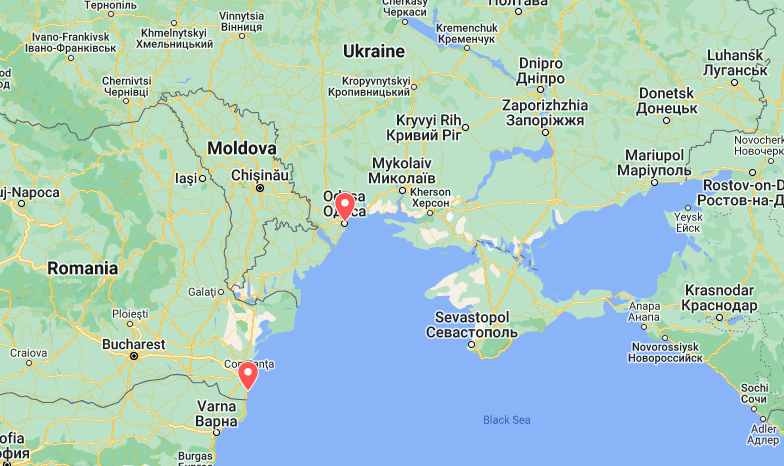
“For us, it wasn’t a choice between staying in Odessa or living somewhere else,” she explained. “I was choosing community.”
She and her family are affiliated with Tikva Odessa, a Jewish aid organization that serves vulnerable communities in Ukraine. Tikva runs Jewish schools, orphanages, community-care programs, and most recently, a ‘pop-up’ community for refugees in Romania.
“Neptun is a holiday resort town on the Black Sea. It only really opens three or four months a year in the summer, so they have a lot of buildings that are empty all-year-round otherwise,” explained Jeremy Posen, Tikva’s chief financial officer.
Anticipating the war, Tikva’s executives had been planning where to go in case of emergency.
“We were stockpiling food and fuel, and looking into options where we could escape the country,” Posen said.
As soon as danger struck, they evacuated thousands (drawing international attention for their overnight evacuation during Shabbat) and set up a fully-functional community in Neptun for what they call their “Tikva family.”
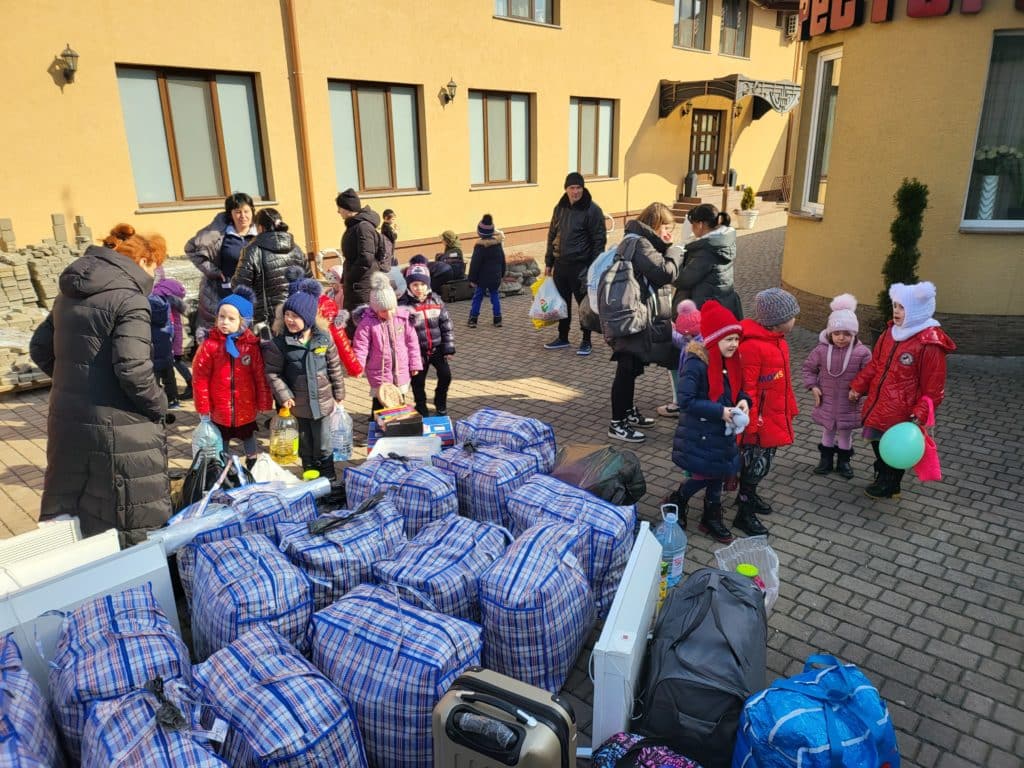
“We are not like family,” Feoktistova explained. “We are family.”
Tikva was founded in the early 1990s to serve the growing number of Jewish orphans in Odessa. Eventually, they developed a school and education system, and now their community is largely made up of married Tikva graduates and their own children.
Feoktistova, who now lives in Neptun with her husband and two children, joined Tikva at 16, enrolling in high school at one of the organization’s centers. She earned a degree in English and foreign literature from its university program and later became involved with Tikva from an operational standpoint. She now works in the offices and has become a pillar of the community.
“Whether it’s in Ukraine or Romania or somewhere else, the most important thing for us is to stay together.”
Although she misses her life in Odessa, there is nothing Feoktistova would trade for being with the Tikva community, she said.
Life in Neptun: Making the best of a difficult situation
In Neptun, Tikva set up camp for some 1,000 people split between young families, elderly folks and young children— mainly orphans and what Posen calls “social orphans,” or children from families who could not care for them because of finances or dysfunction.
The town of Neptun has a total population of 1000 people, according to Romania’s most recent census in 2011, which means Tikva’s community now makes up around half the population.
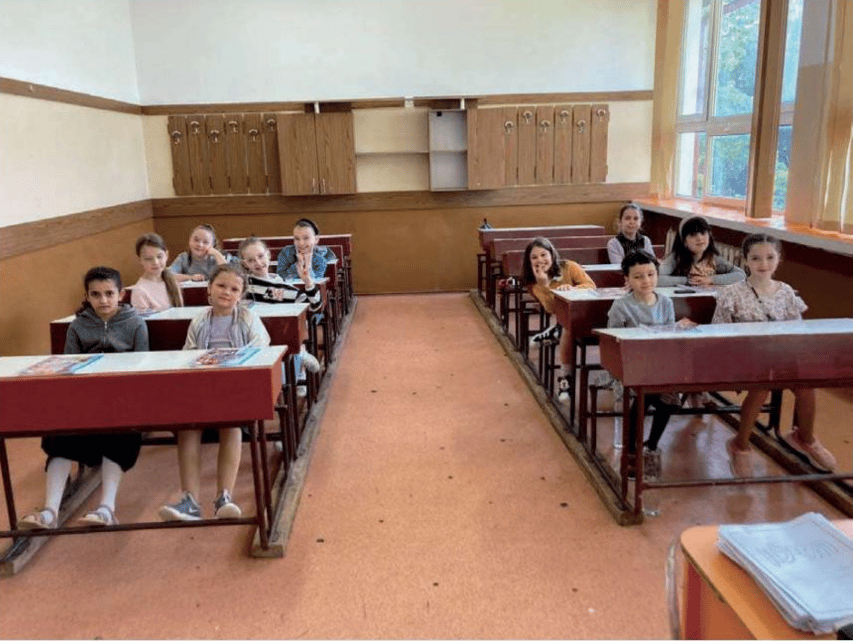
“We’ve got three buildings— imagine a retirement home— It’s not fancy at all. The rooms are the same size as a hotel so families have been living in very cramped conditions for six months already,” Posen explained.
The community has set up a Kosher kitchen and uses an empty conference room as a dining room. There’s a 24/7 emergency clinic staffed by volunteer doctors and nurses. Most recently, they found an abandoned school building to use for elementary and high school, with the goal of making life feel as normal as possible.
“We celebrated chagim (holidays) and many special occasions, including brisim, three engagements, four weddings, Bar Mitzvahs and more,” said Posen. “We made the best of an extremely trying and challenging situation, everyone put on a brave face, pulled together and looked out for each other.”
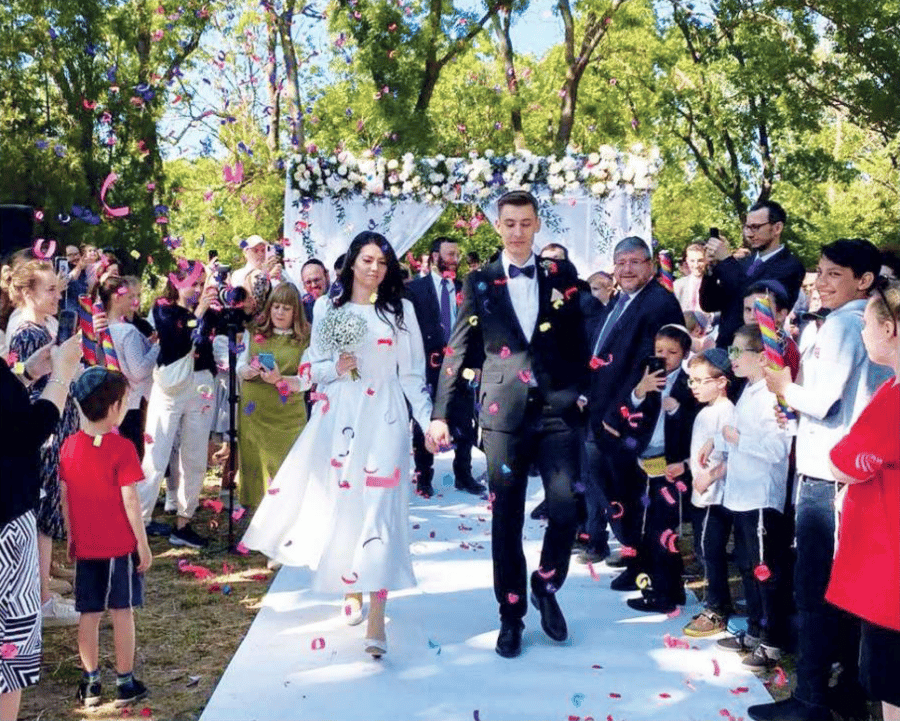
It’s a sentiment that Feoktistova echoes.
“We live only for today, because we don’t know what is going to happen tomorrow, or next month or in a year,” she said.
“When I really start to think about it, I get this feeling around my heart that I lost my homeland,” Feoktistova added sentimentally. “But in general, I don’t feel that we lost much. Baruch Hashem (Thank God) Tikva has done everything to make us feel like we’re at home.”
Feoktistova’s two children attend Tikva’s school and both she and her husband have employment opportunities within the community.
All the jobs in the hotel were divided amongst the community members— Some work in the kitchens preparing meals or cleaning up the dining room. Others handle logistics, like managing the trucks that arrive daily with Kosher food.
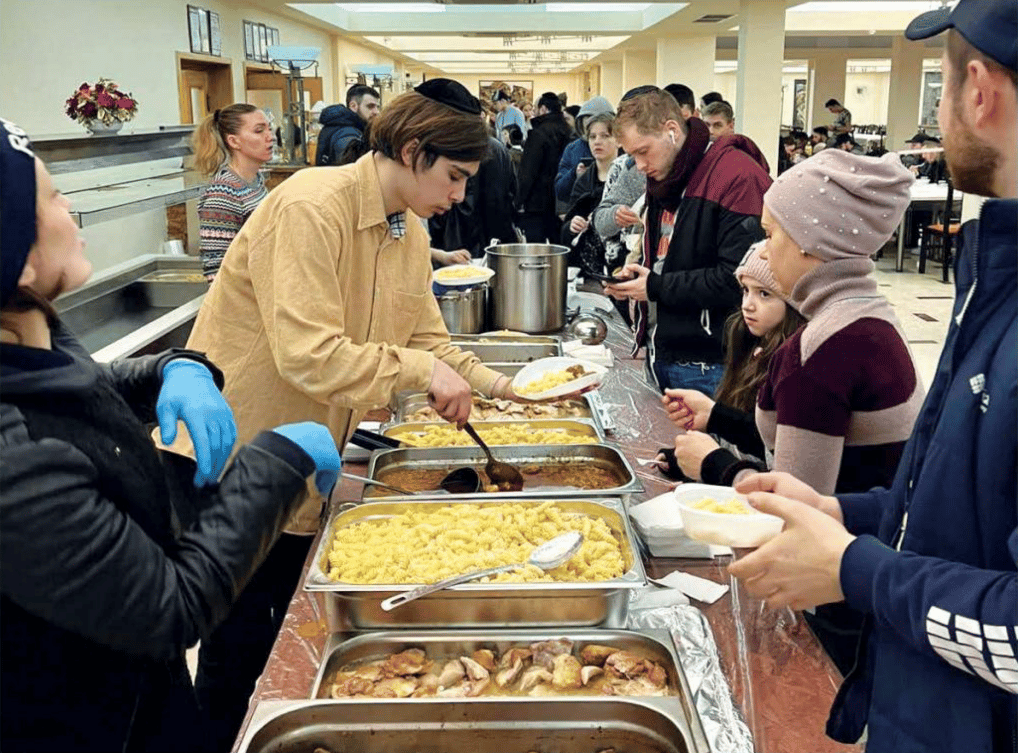
One of the biggest expenses and logistical challenges they face is providing over 3,000 kosher hot meals per day.
“There’s almost no kosher food available in Romania, so we have been sourcing food from all over Europe,” explained Posen. “With the High Holidays coming up, we want more and slightly nicer food so we will probably be the single largest buyer of kosher food in continental Europe.”
“It will be an emotional period:” Celebrating the High Holidays
This year’s High Holiday season will look very different from past new years.
“Much of the material side of Tikva has been left behind,” Posen said, rattling off a list of examples.
“On the first day of Elul when you start blowing the shofar, we suddenly woke up and realized we don’t have a shofar. In Odessa, our synagogue had five.”
Every bus that arrives from Odessa brings with it essential items for the holidays. Most recently, they are focused on sourcing the four species (including the lulav and etrog) for Sukkot.
For the few hundred community members that stayed back in Odessa, there will be a small Sukkah and modest services in the synagogue.

“The situation is very up in the air. The utilities are on and off, gas is hard to come by, sirens are going off multiple times a day, you have to run to the bomb shelters… It’s not a normal existence.”
Tikva is renowned for their lively holiday services, Posen said, and they will try to make as meaningful a holiday as possible given the circumstances.
“We will miss our beautiful synagogue, built over 180 years ago and the wonderful acoustics that so enhanced the services. We will long for our traditional sukkah, the largest one in the former Soviet Union, its beautiful decorations created and hung by all the children,” he said. “Each family will miss their own sukkah and, indeed, their own homes.”
The community will miss nearly everything about how they celebrated the holidays in Odessa, but although services will look different, their spirit will remain unscathed, he told me firmly.
“As we pray on Rosh Hashanah and Yom Kippur, the eternal words of Un’taneh Tokef (the central prayer of the High Holidays) will take on a whole new meaning,” Posen said, referencing the lines:
Who will live and who will die; who by the sword, who by upheaval; Who will rest and who will wander; Who will live in harmony and who will be harried; Who will enjoy tranquility and who will suffer; Who will be impoverished…
“These words will strike a chord with every one of us, this year more than ever,” Posen added. “We will pause, look back, appreciate the fragility of our existence and be grateful for how we have pulled through and been granted a new lease of life.”
“It will be an emotional period, with more fervent prayers and requests, more apprehension for the future, but also with reinforced unity and belief.”
In good spirits despite the incredible challenges
If the community thought they were like family before, now they are really family, said Feoktistova.
“We’re now much closer on top of each other than we were before,” she explained. “Before, most families had their own apartment, now we spend all their time together, living, working, eating.”
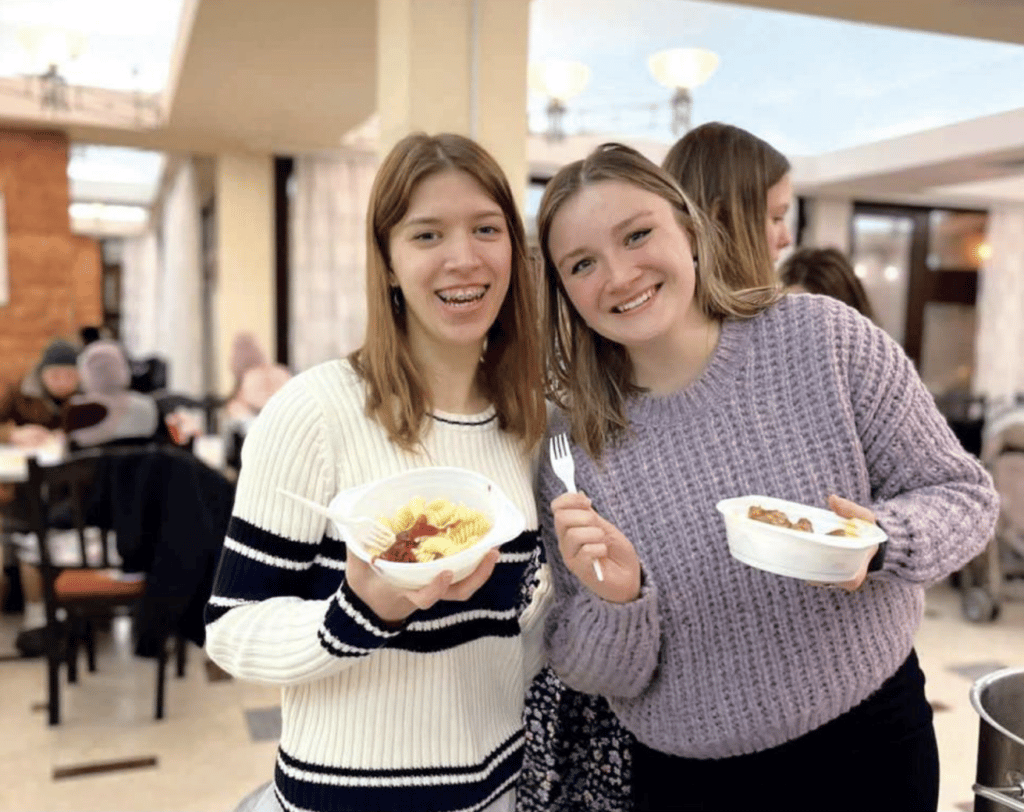
For some members of the community, the new set up has been an unexpected gift, according to Posen.
“Many of the older members have expressed to me very clearly that this has actually been the best period of their life,” he said. “It’s a terrible thing to imagine, when you’re sitting with a ninety year old, for them to look at you with tears in their eyes and tell you that throughout the ninety years that they’ve lived, this six month period of war has been the best of their life.”
Many of the older residents live alone in run down apartments, Posen explained. The only social interactions they had were at social clubs twice a week, or when Tikva brought them food.
“In Odessa, they spent 90 percent of their time alone. Now they’re in a building surrounded by hundreds of kids and young couples,” he explained.
The most trying situations often bring out the best in people, Posen added.
“It’s a very special atmosphere,” he continued. “It’s not an easy time but people are walking around in good spirits. Everyone has really pulled together and made it happen. Our spirit lives on. Our appreciation and love for each other has grown. Our family has been strengthened.”
No one left behind
Though the war has been raging for months, Tikva’s Romanian community is still growing.
“We’ve got a lot of interest, and we’re bringing out anyone who reaches out to us that wants to come out,” said Posen. “We say yes to everyone. As soon as we fill a bus we send it to Neptun.”
This week alone, they sent two full buses from Odessa. Some are new community members and others are passing through Neptun on their way to a different final destination.
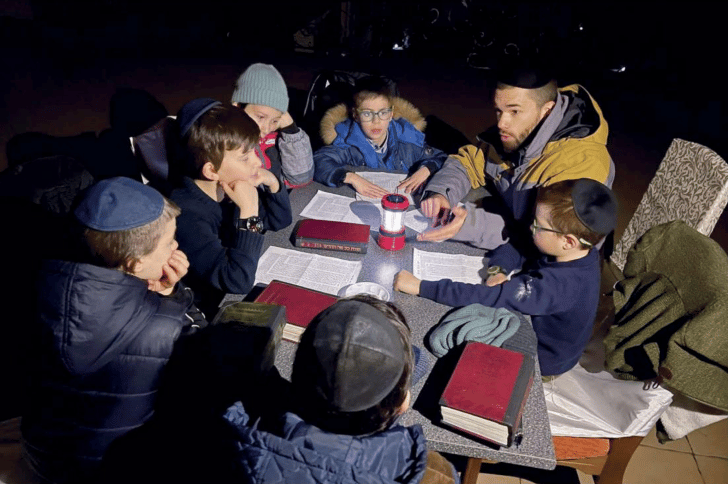
Over the last month, Tivka’s CEO Rafael Kruskal has received calls from Ukrainian refugees who fled to other parts of Europe and are now asking to join.
“They hear we have a community here,” Posen explained.
When people call now, Posen said, he often asks why they are reaching out now, over 6 months into the war. What has changed?
“This week, Russia suffered heavy defeats and bombed power stations in Ukraine. The power was down in Odessa for a few days so there was an uptick of calls. People saying:
“This is just enough. We have to get out.”
“Yesterday there was a shelling within 100 yards of my house that blew the windows out and I realized that I can’t carry on like this.”
When asked how people around the world can support Tikva, Posen noted the obvious: financially. But that’s not the only way.
“During those first days when it was really tense and we were on the road for 28 hours getting out of Odessa, we were receiving messages from all over the world telling us “we’re praying for you and we’re thinking of you,” he said. “We really felt that. We felt very much in your thoughts.”
As the war waxes and wanes, the media has become less interested in covering what’s going on, he noted, but the situation is still grave.
This High Holiday season, he has one ask:
“Your prayers gave a morale boost then, and they still do now.”
